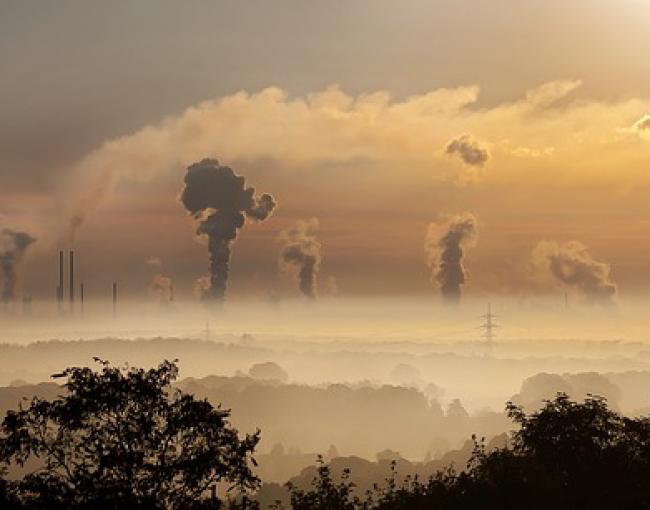Articles Menu

March 15, 2020
The fight for climate action offers a “cautionary tale” for policy-makers looking to accelerate their efforts to #FlattenTheCurve on COVID-19—as well as on how to best stimulate the global economy in the pandemic’s aftermath, reports the New York Times.
“Alarming levels of inaction” is how the World Health Organization has characterized the global response to COVID-19, the Times writes—a judgement that is “a familiar refrain” for climate champions.
“Both demand early aggressive action to minimize loss,” said Georgia Institute of Technology climate scientist Kim Cobb. “Only in hindsight will we really understand what we gambled on and what we lost by not acting early enough.”
For years, world leaders have ignored the urgings of scientists like Cobb “to bend the curve of planet-warming emissions.” Instead, emissions have “raced upward,” with dire global consequences.
Enter COVID-19—which could be likened to “climate change on warp speed,” said New York University climate economist Gernot Wagner. With such an analogy to hand, policy-makers and the broader public urgently need to understand that the ongoing failure to “take climate risks to heart” owes both to the political machinations of a relative few, and the psychological myopia of almost everyone, the Times adds.
“Change is hard when there’s a powerful industry blocking it,” writes reporter Somini Sengupta. Acting in its own self-interest, the fossil fuel industry “pushed climate science denial into the public consciousness” while lobbying, successfully, against climate action.
In the face of the “same disregard for scientific evidence with respect to coronavirus,” Science magazine issued “an unusually blunt editorial” this week, rebuking Donald Trump “for demanding a coronavirus vaccine at a time when his administration had gutted funding for scientific research and repeatedly questioned the fundamentals of science,” Sengupta writes.
“You can’t insult science when you don’t like it and then suddenly insist on something that science can’t give on demand,” said the Science editors.
And human psychology is also at play. “As with climate change, our collective ability to confront the pandemic is shaped by our brains. We are bad at thinking about tomorrow,” and “that appears to be true even if the future isn’t so far away.” The Arctic is “on track to be ice-free in summers in 20 years,” Sengupta notes, while “the Amazon rainforest could turn into a savanna in 50.”
These failures offer “lessons for our ability to confront the virus,” she adds. “It’s all the more important to have leaders enact policies that enable us to protect ourselves against future risk.”
In fact, she continues, the disconnect between expert predictions of climate peril and insouciance on the part of policy-makers (and the public) is even greater than what’s been apparent in the response to the pandemic. Despite the depth of the climate crisis and the speed and scale of emission reductions now required, “we are not told to do the climate equivalent of coughing into our elbows. We are not discouraged from flying.”
The result? People are losing their lives—including the more than 2,300, most of them elderly, who died of heat stress in western Europe this past summer. A recent report from the University of Chicago projects that, by 2100, climate change will “kill roughly as many people as the number who die of cancer and infectious disease today,” reports Sengupta, adding that the world’s most vulnerable will “bear a disproportionately high share of the global mortality risks of climate change.”
That leaves us with one “big unknown,” she adds: “Will the effort to revive the global economy after the pandemic accelerate the emissions of planet-warming gases, rather than avert climate change?” The answer depends on whether powerful nations “use this moment to enact green growth policies” or go instead for short-term political interest and the self-destructive myopia that haunts our species.